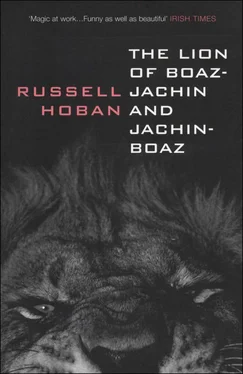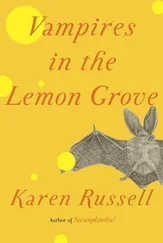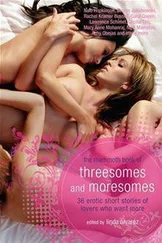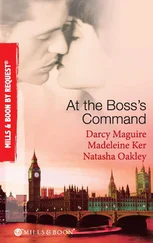With maps he was of course remarkable. He had a way of unfolding a map that was nothing less than erotic, a cartographical seduction. People bought from him stacks of maps and whole atlases of places to which they would never travel, because Jachin-Boaz had made the coloured images of oceans and continents, roads, cities, rivers and ports irresistible to them.
Jachin-Boaz was gay and tireless at his work, and he looked forward eagerly to each evening with Gretel. At that time they needed very little sleep, made love greedily, talked for hours and took long walks late at night. To Jachin-Boaz the street lamps seemed luminous fruits bursting with knowledge. He tasted their light in his mouth and marvelled that this was he, Jachin-Boaz, tasting the night and the love he had found in the great city. He felt strongly the ripe blackness of rooftops against the night sky, the poignancy of roofs and domes of the city fitting into the night sky. The colours and textures of the pavement, the substance of it, were intense with flavour. His and Gretel’s footsteps on the bridges over the river sounded miraculous with truth.
Gretel was nearly twenty years younger than Jachin-Boaz, and he had begun to fall in love with her when he heard her talk about the father she had never known.
Jachin-Boaz’s father had been a tall handsome man who had built up his map business from nothing, smoked expensive cigars, directed plays in the local dramatic society, had a beautiful mistress, wanted his son to be a scientist, and died when Jachin-Boaz was still a student.
Jachin-Boaz’s wife’s father had been a grocer in the town who owned a place in the desert that he wanted to make green with trees and orange groves. For years he impoverished his family by sending money to the desert place. It was not yet green when he took his wife and children there and died. They came back to the town.
Gretel had grown up without a father, had never seen him. He had been killed in the war when she was less than a year old. Her mother had never married again.
Jachin-Boaz had met Gretel when buying books at her shop. He was a regular customer, and in time he invited her to lunch. She was a tall fair blue-eyed girl, full of country freshness. She was as rosy, as sweet and pretty as a lady on a cigar-box lid. They spoke of the places they had come from. Gretel’s town was only a few miles away from a famous camp where thousands of Jachin-Boaz’s people had died in gas chambers and had risen in smoke from the chimneys of crematoria. Gretel told Jachin-Boaz about her dead father who had been a soldier in the medical corps.
She had only a few things to tell. He had been a market gardener, and her mother and her brother continued in that business. He had drawn a little. There was a charcoal drawing of a heath at home that she had looked at and thought about. He had played the violin. She had seen music exercise-books of his. She had spoken to a pianist friend of his who remembered playing sonatas with him. He had been an amateur astrologer, and had himself cast the horoscope that foretold his death in the war.
Jachin-Boaz listened to her speak softly about the dead man whom she had not known. He wondered in what features of hers, in what gestures and movements her father survived, in what thoughts and recognitions. He had never known a woman to hold a man so gently in her mind as Gretel held her unknown father. He had never before known a woman with such a gentle mind. She had never known a man with whom she felt so much herself, felt that her essential self mattered so much, was so valued. They fell in love.
The first time they made love Jachin-Boaz was almost beside himself with the achievement of it. This tall fair girl, the daughter of warriors, naked under him, looking up at him in fear and joy, delight and proud submission! He, the son of scholars, bent-backed men in black, generations of studious fugitives. My seed into your womb, he thought. My seed in the warrior-girl’s belly. At the same time it was as if he was taking the most hotly desired girl of his boyhood, unapproachable then and a middle-aged woman now, into the bushes of carnal innocence and joy. He was her strong and cunning old man. Jachin-Boaz was enormously pleased with himself.
He was delighted to find that he did not love Gretel for any reason that he might have thought good in the past. Not for intelligence or accomplishments. Not for anything that she did. He loved her simply because she was. What a thing, thought Jachin-Boaz. Love without purpose.
He hired a small van, triumphantly moved her belongings from her room to his flat. She asserted her domestic status by cleaning it. Cautiously she approached the clutter on his desk that Saturday while he was taking a nap. This could be dangerous, she thought, but I have to do it. I can’t hold back.
Jachin-Boaz, unsleeping, heard her move every object and all the papers on the desk as she dusted. I don’t care, he thought. Even if she throws everything out of the window I love her.
Gretel had examined the master-map in her cleaning. ‘I don’t think that you made that map for your son,’ she said when he told her about it. ‘I think you made it for yourself.’
‘Do you really think that?’ said Jachin-Boaz.
‘Yes. And the map brought you to me, so I’m well pleased with it.’
Jachin-Boaz touched the smooth skin of her waist, traced with his finger the curve of her hip. ‘It’s astonishing,’ he said. ‘For eighteen years I was alive and you weren’t even in the world yet. You were one year old when I got married. You’re so young!’
‘Make me old,’ said Gretel. ‘Use me up. Wear me out.’
‘I can’t make you old,’ said Jachin-Boaz. ‘But you think you can make me young, eh?’
‘I can’t make you anything,’ said Gretel, ‘except maybe comfortable sometimes, I think. But I don’t think there ever was a young Jachin-Boaz until the old one took his map and ran away. So now there’s a Jachin-Boaz that never was before, and I have him.’
Sometimes, riding in the underground trains, he would see from the corner of his eye the headlines of newspapers being read by other passengers, JACHIN-BOAZ GUILTY, they said. When he looked again the words changed to the usual affairs of the world.
Boaz-Jachin had completed his first drawing. It was an accurate full-size copy of the dying lion and the two arrows and the two spears that were killing him.
Now by transferring the lines of that drawing to another sheet of brown paper he made a second drawing. It was the same as the first except that one of the arrows was no longer in the lion. It lay on the ground under his hind feet as if it had missed him.
As he looked at the photograph from time to time Boaz-Jachin began to pay more attention to the wheel. He remembered the stillness of the original stone under his eyes and under his fingers when he had touched it. Always and always the leaping dying lion never reaching the splendid blank-faced king for ever receding before him, for ever borne away in safety by the tall wheel for ever turning. It made no difference that the king was now as dead as the lion. The king would always escape.
‘The wheel,’ said Boaz-Jachin aloud. Because it was the wheel, and the wheel was the wheel. The sculptor had known it and now it made itself known to Boaz-Jachin as its turning took away his father and his map and brought the dark shop and the bell and the door and the waiting. Boaz-Jachin was sorry that the wheel had made itself known to him. He wished that he had not recognized the wheel.
Boaz-Jachin shook his head. ‘Biting the wheel is not enough,’ he said.
The door of his room was open, and his mother appeared in the doorway. Her hair was disarranged and she seemed unable to compose her face. There was a knife in her hand. ‘Still the school project?’ she said.
Читать дальше












